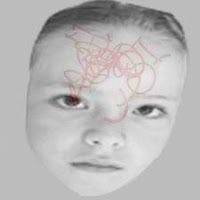All parents with Aspergers and high functioning autistic (HFA) children have experienced it: the dreaded meltdown in a public place. Your child is screaming at the top of his lungs while an assortment of disapproving eyes are all focused on you. The pressure is on! What can you do? Fear not, you are not alone.
Below are some tips to preventing meltdowns and tantrums while shopping:
1. Anything that reduces uncertainty will help to reduce meltdowns. Give your youngster a visual list of where you are going and the places you will be visiting. Make cards with pictures of the places you are going to, or cut out pictures from a magazine. Let your youngster help you make the list and arrange the order of places where you are going. In this way, he will be able to anticipate where you are going and what will happen next. Take your list along, and every time you have finished one errand, remove the card from the list and ask your youngster to tell you where you are going next. Once all the cards have been removed from the list, you can take him for a treat (if there were no meltdowns).
2. Set expectations. Before leaving the house, set out clear rules so your youngster knows what to expect. Explain you are going for only the items on your list – and nothing else (e.g., say to your youngster “we are not buying a toy today” and ask him to repeat this statement back to you). If your youngster knows what to expect before leaving, there is less chance of him having a meltdown when you say “no.”
3. During meltdown, put your youngster's needs first. It is tempting to worry about “what everyone else is thinking,” but make eye-contact with your youngster and let him know you are "present" to the situation. Stay cool. The last thing your screaming child needs is to be confronted with a screaming mother or father telling him to “stop it” and threatening to take away all of his favorite toys when you get home. Stay calm and talk to your youngster. Verbal aggression is fueled by lack of communication. When parent and child are shouting at each other, this breaks down the communication even more.
4. Avoid a physical struggle when possible. If a meltdown does happen, you may have to physically restrain your youngster to prevent him from harming himself or others, but generally a physical struggle makes things worse. If your child finds comfort in being held, he will see this as a reward for his meltdown, especially in public. As a result, you may see him having more – not fewer – outbursts.
5. Avoid verbal examinations. Although it is a good idea to talk with your youngster when you are shopping, avoid creating the impression that outings are verbal examinations. Sometimes, well-meaning moms and dads present their youngster with a rapid-fire series of questions (e.g., "What color is that balloon?" … "What shape is that?" … "Point to the clown") as they navigate through their shopping trip. Kids on the autism spectrum have speech-processing delays. Because they are already distracted by everything they see during an outing, asking them a series of questions can create additional cognitive demands, and in some cases trigger meltdowns. Allow your youngster's interests to guide occasional questions from you (e.g., if your youngster is staring intently at a poster of a popular kid's book character in a store window, you might ask him the name of the character he sees).
6. Don't make jokes. This is not the time to try and cajole him back to a calm state. If he is shrieking and thrashing around on the floor, put your shopping cart in reverse, tell the check-out lady you will return another time, and physically walk out of the store with your child in tow. Sometimes a different environment is all it takes to calm an Aspergers or HFA youngster down. If he doesn't calm down, leave …quickly.
7. Be realistic. "Special needs" kids can only be “stimulated” for so long. Be considerate and remind yourself how you feel when something over-stimulates you (e.g., the sound of loud screeching brakes). No child is going to sit quietly as you visit seven shoe stores and try on every pair you like. Cut shopping strips down to one hour (two at the most!). Also, consider browsing websites to find the items you want before going in order to cut down on shopping time.
8. Build in opportunities for choices along the way so that your youngster feels he has some control. For example, if you are going to take a break in mid-morning during a shopping spree, you might include a choice of snacks on your youngster's schedule so that he can choose between a fruit smoothie or some chocolate milk. On the visual schedule, the item that comes after the visit to the shoe store can show two images side by side – a fruit smoothie or a container of chocolate milk – from which your youngster can choose.
9. Apologize to bystanders while you attempt to gingerly make your way out the door. You need not gush, simply say, "I'm sorry, we are having a difficult morning."
10. Diffuse the problem ahead of time. If you see a meltdown brewing, try to gently diffuse it by stopping, bending down to your youngster, and speaking softly and gently to “nip it in the bud” before it escalates. Explain the expectations that the two of you agreed upon earlier - and that you both promised “no screaming or shouting” - and give him something to look forward to (e.g., trip to the park on the way home, lunch at McDonald’s, etc.).
11. Use distraction. Only a mother or father can recognize and understand the benefit of using the technique called “distraction.” When that bottom lip starts wobbling, you’ll do whatever it takes to prevent a screaming session. To the uneducated eye, it may appear you are spinning around on one foot, singing “Row Row Row Your Boat” while clapping your hands, but in all actuality, over your years of parenting, you have mastered distraction.
12. For younger children, don’t go out before naps. When possible, have your child take a good hour nap before leaving for a shopping trip. If he is tired, he will be quick to explode if he becomes over-stimulated.
13. Don’t go out hungry. A hungry kid is a grouchy kid. Go shopping – especially food shopping – only after a snack or meal.
14. Ignore the minor tantrums. It can be easy to crumble with embarrassment and feel you must reprimand your child as other shoppers look on. By allowing yourself to get angry and raise your voice, you will simply add fuel to the fire. Tantrums are attempts to get your attention so that your youngster can get what he wants. Ignore the milder form of tantrums, and he will tire-out eventually or forget what he was complaining about. (Note: There is a difference between a tantrum and a meltdown. Tantrums are voluntary – meltdowns are not!)
15. Refrain from trying to act like a full-blown, major meltdown isn't happening. Nothing is more maddening to bystanders than witnessing a mother or father attempting – and tragically failing – to ignore her youngster's “totally out-of-control” behavior. It’s a "lose-lose" situation for all concerned to pretend that high-voltage behavior is not taking place.
With the right techniques, you can avoid public meltdowns and tantrums completely, but this takes time, patience, determination – and sometimes, just plain guts!
My Aspergers Child: Preventing Meltdowns and Tantrums









